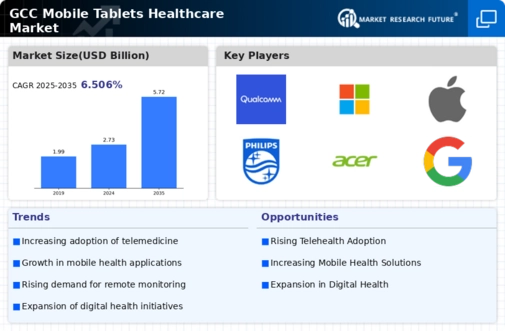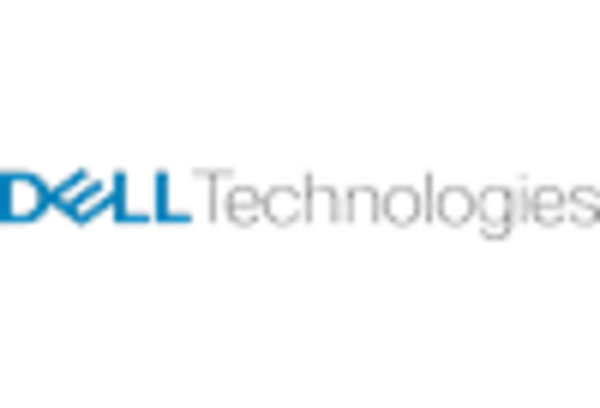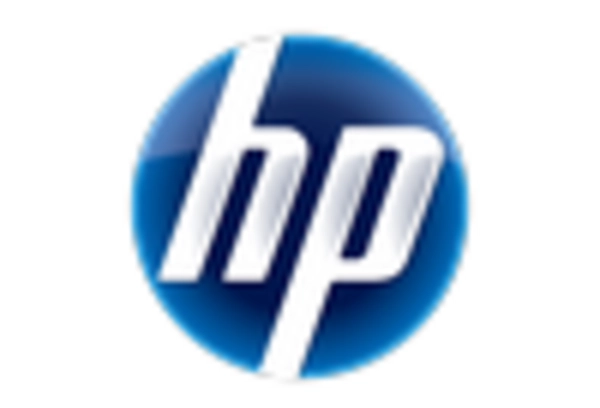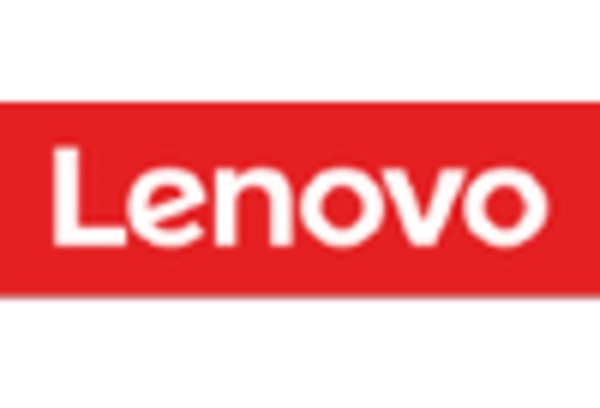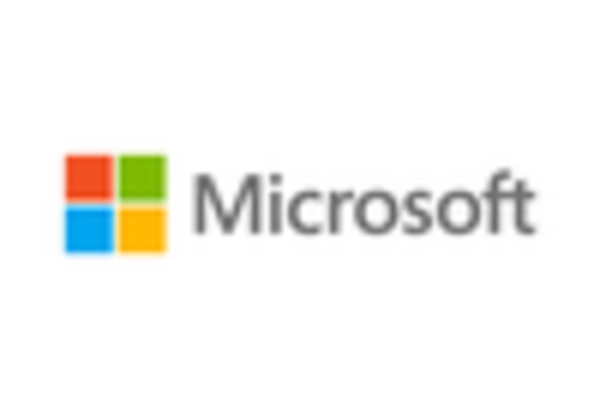Advancements in Mobile Technology
Technological advancements in mobile devices are significantly impacting the mobile tablets-healthcare market. The introduction of high-performance tablets with enhanced processing power, improved battery life, and advanced display technologies is enabling healthcare professionals to utilize these devices more effectively. In the GCC, the proliferation of 5G networks is further enhancing the capabilities of mobile tablets, allowing for faster data transmission and improved telehealth services. This technological evolution is expected to drive market growth, with projections indicating a potential increase of 14% in the adoption of mobile tablets within healthcare settings over the next few years.
Increased Focus on Patient Engagement
The mobile tablets-healthcare market is witnessing a shift towards enhancing patient engagement through technology. Healthcare providers in the GCC are increasingly recognizing the importance of involving patients in their own care processes. Mobile tablets facilitate this engagement by providing patients with access to their health information, educational resources, and communication tools. This trend is supported by studies indicating that engaged patients are more likely to adhere to treatment plans and experience better health outcomes. As a result, the market is projected to grow by 10% annually, as healthcare organizations invest in mobile solutions that empower patients and improve their overall experience.
Rising Demand for Remote Patient Monitoring
The mobile tablets-healthcare market is experiencing a notable increase in demand for remote patient monitoring solutions. This trend is driven by the need for continuous health tracking and management, particularly in chronic disease care. In the GCC region, healthcare providers are increasingly adopting mobile tablets to facilitate real-time monitoring of patients' vital signs and health metrics. According to recent data, the market for remote monitoring devices is projected to grow at a CAGR of 15% over the next five years. This growth is indicative of a broader shift towards patient-centered care, where mobile tablets serve as essential tools for healthcare professionals to enhance patient engagement and improve health outcomes.
Growing Need for Efficient Healthcare Delivery
the mobile tablets-healthcare market is driven by the growing need for efficient healthcare delivery.. As the population in the GCC continues to expand, healthcare providers are under pressure to deliver high-quality services while managing costs. Mobile tablets offer a solution by streamlining workflows, reducing paperwork, and facilitating better communication among healthcare teams. This efficiency is crucial in emergency situations where timely access to patient information can save lives. The market is anticipated to grow at a rate of 11% annually, as healthcare organizations increasingly recognize the value of mobile tablets in enhancing operational efficiency and patient care.
Government Initiatives Supporting Digital Health
Government initiatives in the GCC are playing a crucial role in promoting the adoption of digital health technologies, including mobile tablets in healthcare settings. Various national health strategies emphasize the importance of integrating technology into healthcare delivery to improve efficiency and accessibility. For instance, investments in digital infrastructure and incentives for healthcare providers to adopt mobile solutions are becoming more prevalent. The mobile tablets-healthcare market is likely to benefit from these initiatives, as they aim to enhance healthcare services and streamline operations. As a result, the market is expected to witness a growth rate of approximately 12% annually, driven by supportive policies and funding.


